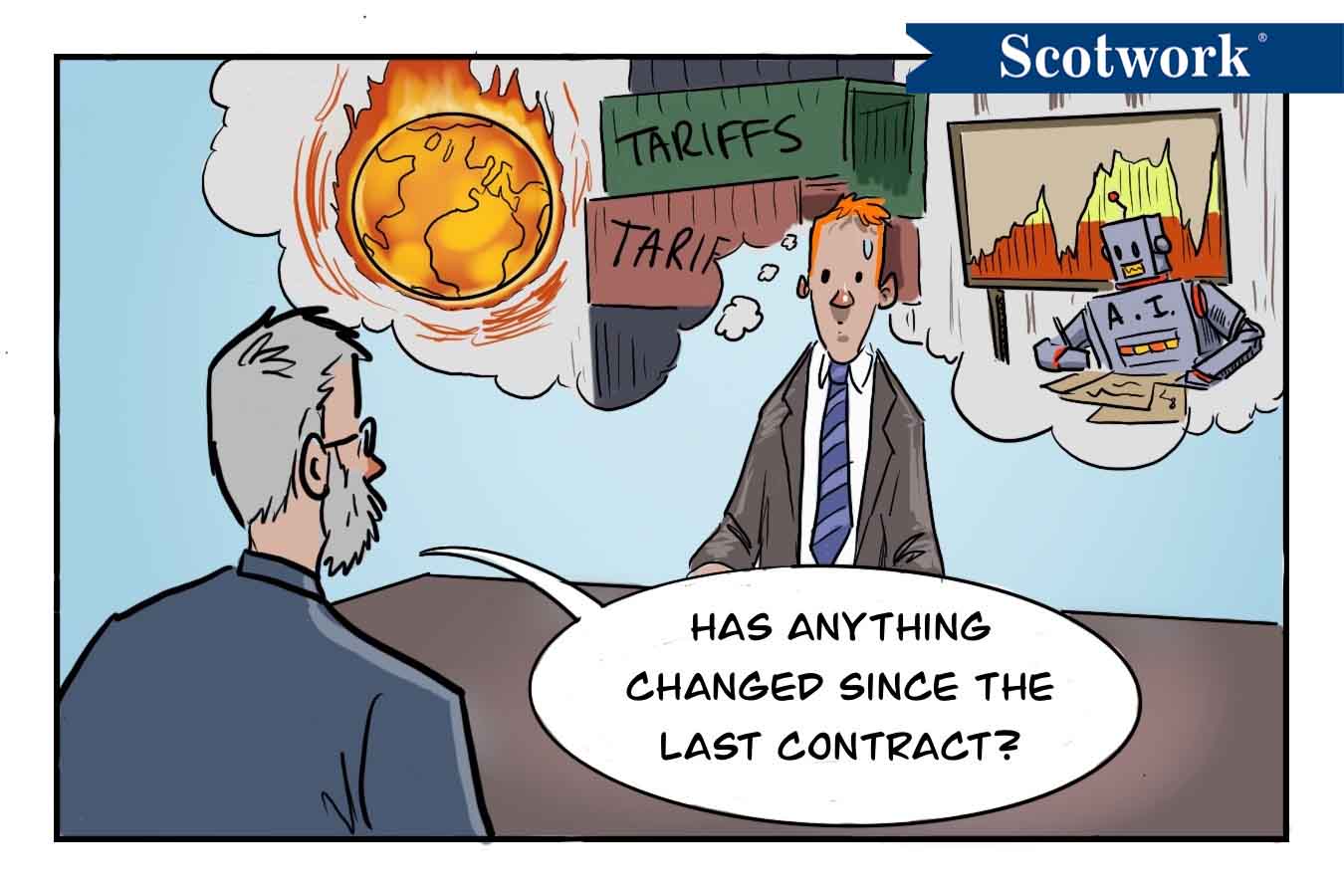This year’s contract renewal season is anything but routine. New federal and state rules around automatic renewals are tightening compliance requirements, while AI-driven tools are transforming how companies analyze, track, and manage their agreements. At the same time, external forces — ranging from a turbulent political climate and geopolitical tensions to sweeping tariffs and shifting macroeconomic conditions — have made long-term planning far more complicated. Against this backdrop, buyers and sellers face unprecedented complications heading into contract renewal negotiations, creating a heightened need for preparation, flexibility, and foresight.
While the specifics of today’s environment may be unique, the underlying challenge is not. Anytime assumptions shift, the future is uncertain, or the way two parties work together must change, renewals become less about paperwork and more about the negotiation. With that said, here are 3 tips that both buyers and sellers should keep in mind as they prepare.
Evaluate What’s Changed
The first and most important step in any renewal negotiation is to stop and ask, “What’s changed since we signed this agreement?” Contracts often outlive the assumptions they were built on, and renewing without challenging those assumptions or recognizing the changes in conditions that drove the contract is a recipe for misalignment.
For Buyers: Take a fresh look at your needs. Have your priorities shifted since the last contract was signed? Are you paying for services or features you no longer use, or are you missing protections you now need? Renewal is your chance to reset the baseline and make sure the contract reflects your current reality — not the one you faced 12 or 24 months ago.
For Sellers: Think about not only how your business has changed, but also how the marketplace has shifted since the last agreement and how this might impact a renewal or your value proposition. In addition, be prepared to ask questions of the buyer to find out what’s shifted in their business, their market, or their internal priorities. The more you align your value to their evolving context, the more relevant you become.
Plan for Flexibility
If there’s one lesson recent years have taught us, it’s to expect the unexpected: markets shift, policies change, regulations emerge, and priorities evolve. A rigid contract may be a liability when circumstances transform. Flexibility isn’t a concession; it’s an enabler of long-term commitment.
For Buyers: Include options that let you adjust without penalty. This might mean shorter contract terms, adjustable volumes, or defined review points. These mechanisms give you the confidence to commit today, knowing you won’t be boxed in tomorrow if the ground shifts.
For Sellers: Flexibility can also be a differentiator. Offering adaptable conditions can strengthen your hand by making you the easier and safer choice in uncertain times. Just ensure flexibility is reciprocal — for example, linking variable pricing to clear metrics or offering scaled commitments that protect your margins.
Reset the Relationship
Contract negotiations aren’t just about terms and conditions; they’re about how two organizations work together. Over time, relationships can drift: roles blur, expectations shift, and communication patterns break down. Renewal season is a natural moment to pause and reset.
For Buyers: Use the renewal process as more than a procurement exercise. It’s an opportunity to change how both organizations work together once the contract is executed. Use it to clarify roles, responsibilities, and communication expectations. Ensure the contract reflects how you want the relationship to operate going forward, not just the legal protections you require.
For Sellers: Renewal is typically the moment to remind the buyer of the value you’ve already created and set the stage for more. It’s a great opportunity to structure expectations about what’s possible or not possible. Establishing new boundaries will help guide the relationship going forward and ensure precedent doesn’t usurp today’s practice.
Contract renewal negotiations are often treated as administrative chores — boxes to check before year-end. Realistically, they’re strategic checkpoints that force both sides to stop, reflect, and ask whether the agreement still fits the world they’re operating in. By reevaluating assumptions, planning for flexibility, and resetting the relationship, buyers and sellers alike can navigate uncertainty with greater confidence. More than that, they can use renewal season as a springboard to build stronger, more resilient partnerships for the future.
Negotiation Training and Consulting Can Help You Use Contract Renewal Season to Build for the Future.
Contract renewals are strategic checkpoints that force both sides to stop, reflect, and ask whether the agreement still fits the world they’re operating in. Rely on Scotwork’s 50 years of expertise to help you use renewal season to springboard to stronger, more resilient partnerships.

